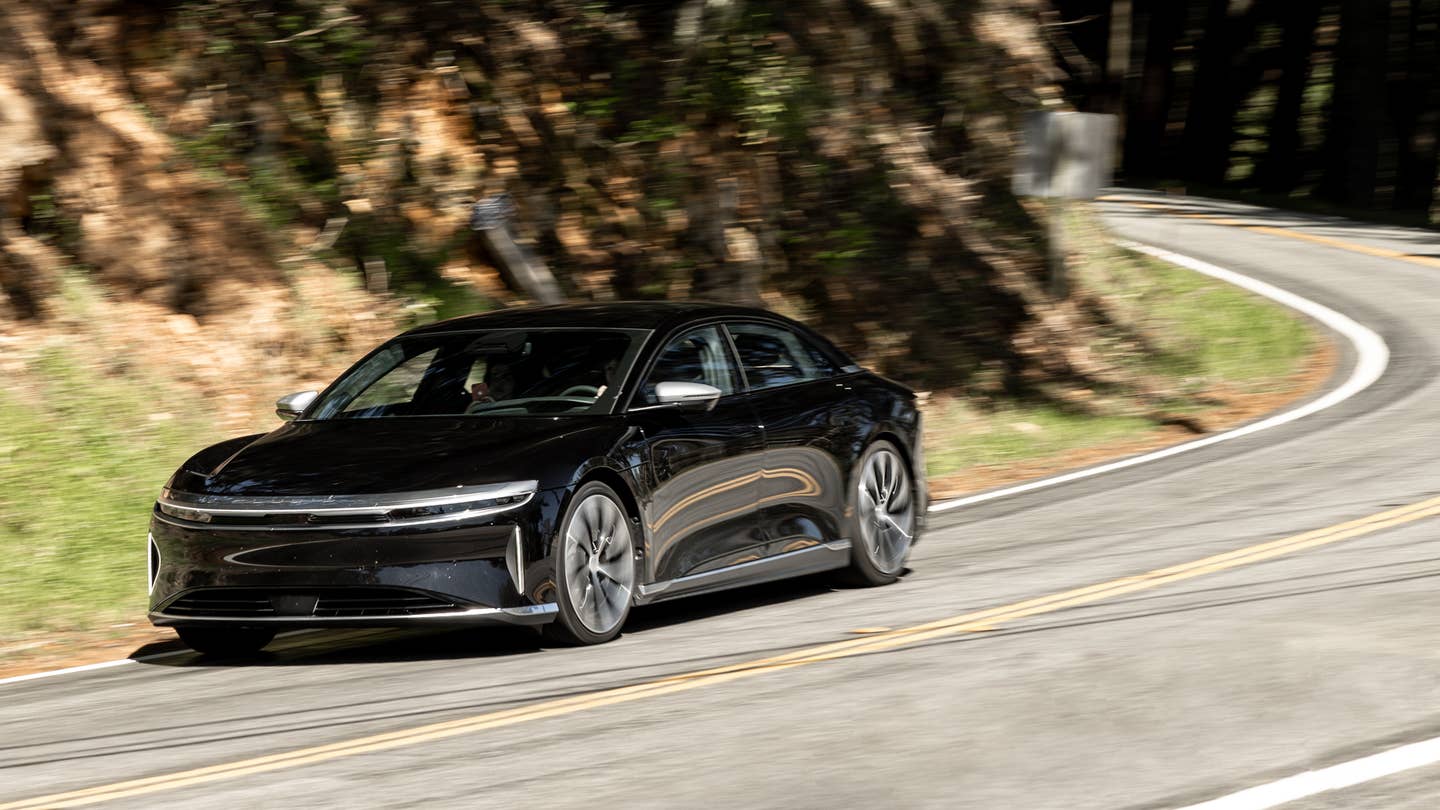Even despite more stringent EPA testing criteria, the Air Grand Touring is still rated to go 516 miles on a charge.

When Lucid debuted the Air Grand Touring, its bladder-busting 516 miles of range made it the longest-legged electric vehicle in America. For 2024, though, the EPA tightened up its range testing, making it harder for many EVs to keep their maximum range figures. However, thanks to some clever tweaks to the Air’s powertrain, battery, and heat pump, Lucid was able to maintain the sedan’s EPA-estimated 516-mile range and keep its range crown.
Lucid didn’t say exactly what has been done to improve its electric powertrain or cell technology, but a large part of the work has to do with better thermal efficiency, helping the Air squeeze every last drop of energy from the battery. One way Lucid improved thermal efficiency was by using the upgraded heat pump from the Air Sapphire, the triple-motor, 1,234-horsepower ultra-performance EV.
Lucid
Let me turn on my infomercial voice to say “But wait, there’s more!” In addition to its diesel-like 516 miles of range, the Lucid Air Grand Touring now charges 15-30% faster at DC charging stations, thanks to improved battery preconditioning. When you’re en route to a charging station using the car’s navigation, it will automatically precondition the battery for charging, enabling faster charges. Lucid didn’t provide exact DC fast-charging figures for the updated Air Grand Touring, but the 2023 model was capable of regaining 300 miles of range in 21 minutes. If the new software can drop that under 20 minutes, customers should be happy.
Despite its impressive range, the Lucid Air Grand Touring is no slowpoke. With 819 horsepower from two electric motors, it can get from 0-60 mph in three seconds flat. Obviously, using such performance will have adverse effects on that 516-mile range, but it’s nice to have that duality: it can be an electricity-sipping EV or a four-door supercar slayer, depending on your mood.
It still doesn’t come cheap, though. If you want the longest-range EV in the U.S., you’ll have to hand over $111,400. Nobody ever said setting benchmarks was easy on the wallet.
Got tips? Send ’em to tips@thedrive.com


